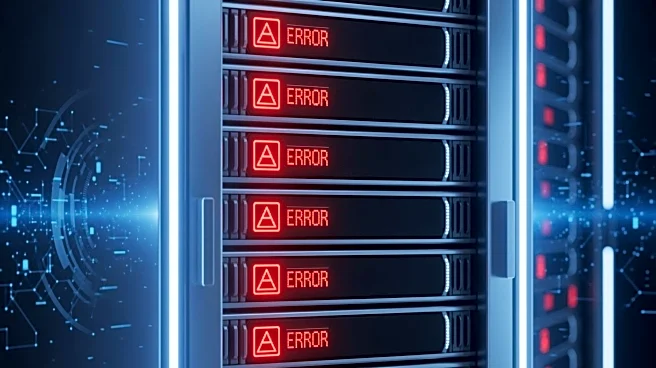What's Happening?
A significant outage of Amazon Web Services (AWS) last week led to widespread disruptions across various platforms, including popular gaming services such as Fortnite and Roblox. The outage, which lasted
15 hours, was traced back to a single software bug within AWS's DNS management system, DynamoDB. The issue originated with the DNS Enactor component, which experienced high delays and failed to update domain lookup tables efficiently. This led to a cascade of errors, resulting in the deletion of active plans and removal of IP addresses for regional endpoints. The outage affected not only gaming services but also numerous non-gaming platforms, marking one of the largest outages recorded by network intelligence company Ookla.
Why It's Important?
The AWS outage highlights the vulnerability of digital infrastructure to software bugs, emphasizing the critical role of cloud services in maintaining the functionality of major online platforms. The disruption impacted millions of users globally, affecting both entertainment and essential services. For businesses relying on AWS, the outage underscores the importance of robust contingency plans and the need for improved system resilience. The incident also raises concerns about the reliability of cloud services, which are integral to the operations of many industries, including gaming, e-commerce, and communication.
What's Next?
Amazon engineers have addressed the immediate issue, but the outage may prompt AWS to review and enhance its DNS management protocols to prevent future occurrences. Stakeholders, including businesses and developers, may seek assurances from AWS regarding system stability and reliability. The incident could lead to increased scrutiny of cloud service providers and potentially drive demand for alternative solutions or backup systems to mitigate risks associated with similar outages.
Beyond the Headlines
The outage serves as a reminder of the interconnected nature of digital services and the potential ripple effects of technical failures. It raises ethical considerations about the dependency on centralized cloud services and the need for transparency in addressing and communicating such disruptions. Long-term, the event may influence industry standards and practices regarding software testing and system updates.











